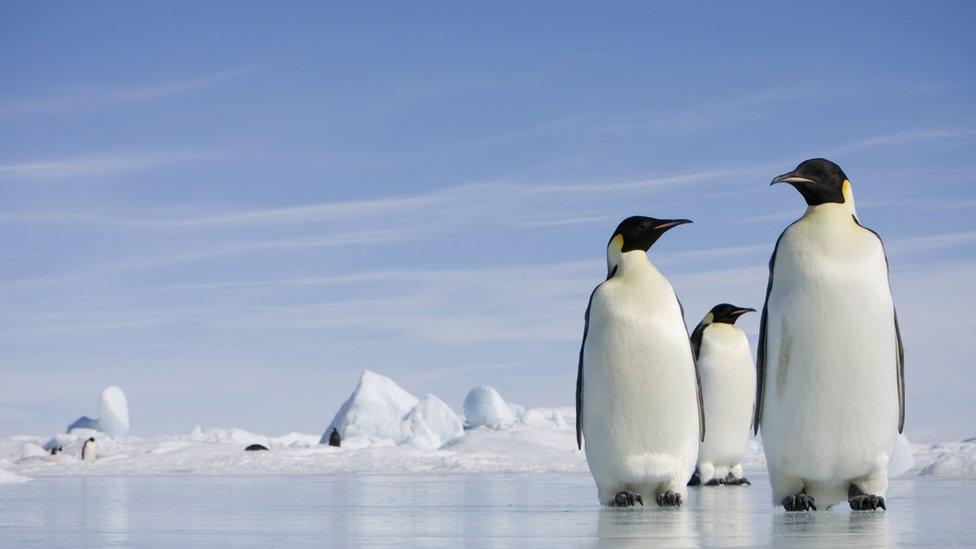Climate change: Emperor penguins could be extinct by 2100
- Published
- comments

Scientists fear that emperor penguins could become extinct by the year 2100
A new study claims climate change could threaten Emperor penguins with extinction by 2100.
Sea ice is disappearing because of the planet warming up from greenhouse gas emissions - and with no sea ice the penguins have no home.
The study found that if no work is done to lower emissions, then at the current rate the penguins could see 80% of their colonies extinct by 2100.
Lead author Stephanie Jenouvrier said: "We need to act now, before it's too late."
Emperor penguins live on sea ice and they wouldn't be able to survive without it
Emperor penguins live on Antarctic sea ice, which is very important to their survival.
The sea ice is a safe home for the penguins - it's where they lay their eggs and they are safe from predators, and their young can grow into adults without needing to enter the water.
When the penguins are young, they only have fluffy baby feathers and this can make it difficult to swim, so they stay on the sea ice until they grow out their sleek adult feathers.
Unfortunately, the penguins can't climb the huge ice shelves to find a home on land - it's very difficult for them and it uses up all their energy, which makes it even more dangerous to climb.
The young penguins have fluffy feathers which means they can;t swim until they grow out their sleek feathers
Sea ice in the Antarctic is melting because of the planet heating up, and this is caused by greenhouse gas emissions from fossil fuels.
Scientists have studied the world's current usage of these fossil fuels to make a prediction for the year 2100, and they are worried that if nothing changes then much of the sea ice will be gone by that time.
The scientists claim that if the countries took action that was in line with the Paris climate agreement, then there could be enough sea ice to support the penguins, although this would still be less than it was today.
The ice shelves are too dangerous for emperor penguins to find a home on land
The proposal to list them under the Endangered Species Act affects the US and not the UK. There are no Emperor penguins in the US, but if they are listed under that act then they would have to help prevent harm to the birds.
This means that as a protected species, the US would not be allowed harm them in their own habitat, for example by fishing in those areas.
They would join the list of species threatened by climate change which include polar bears and seals.
- Published3 August 2021
- Published20 January 2020
- Published17 March 2020
